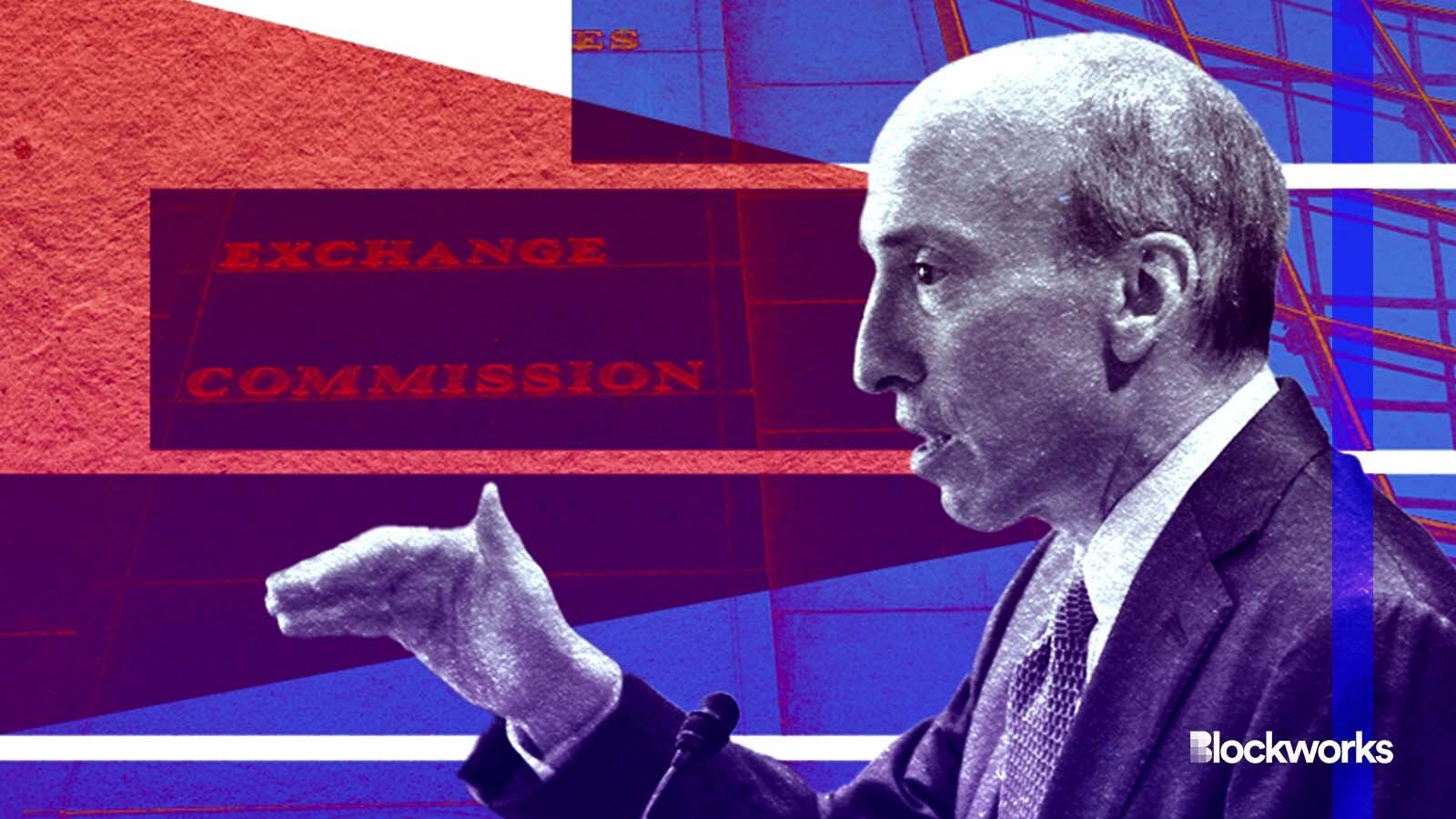DEBT Box defendants say SEC’s deception impacted personal, business endeavors
The SEC admitted last month to making “errors” in its attempts to freeze DEBT Box and related parties accounts

Artwork by Crystal Le
Defendants in the US Security and Exchange Commission’s case against Digital Licensing Inc., which operates under the name DEBT Box, are asking the court to sanction agency attorneys after they were accused of lying in order to receive a temporary restraining order.
“The SEC should be sanctioned here,” defendants wrote in a Friday court filing responding to the SEC’s order to show cause, in which the agency admitted to errors. Defendants are also moving to dismiss the SEC’s case.
Federal judge Robert Shelby in November ordered SEC attorneys to explain why they shouldn’t be sanctioned by the court after presenting what he regarded as false and misleading evidence.
Read more: A federal judge says SEC lawyers lied to freeze a crypto company’s assets
The SEC, Shelby alleged in the Nov. 30 order, deceived the court by incorrectly stating that defendants had closed bank accounts and attempted to move funds overseas. The comments were enough to grant, and later renew, a ten-day TRO, which froze defendants’ assets.
“Commission counsel made a representation during the July 28, 2023 hearing that, unbeknownst to him at the time, was inaccurate,” the SEC wrote in a December filing responding to Shelby’s claims. “Commission attorneys failed to correct that statement when they learned of the inaccuracy. Commission counsel also failed to make clear that certain representations were inferences from the facts known to them rather than directly supported factual assertions.”
Defendants say the TRO shut down crypto firm DEBT Box, resulting in a “complete disruption” for around 300,000 users in more than 130 countries. DEBT Box’s native token crashed more than 56%, defendants added, after the SEC announced it had received the TRO in August.
Defendants Jason Anderson, Jacob Anderson, Schad Brannon and Roydon Nelson, known as the “DEBT Council” and sole controllers of the platform, according to the SEC had personal and business assets frozen by the TRO, Friday’s filing added. The individuals were unable to pay employees, loans were canceled and credit card companies and banks refused to work with them as a result of the TRO, defendants say.
“Jason Anderson’s private lender for real estate with whom he has done multiple millions of dollars’ worth of deals, has given him notice they are no longer willing to do any more loans for him or his entities, and they would not be extending any current notes that are out,” Friday’s filing read. “As a result, his lending and real estate businesses have been ruined.”
Read more: SEC’s bitcoin ETF tweet fiasco may end in fraud charges, lawyers say
The SEC issued an enforcement action back in June against DEBT Box and related parties for alleged fraud and securities law violations. DEBT Box is, the SEC claimed in the complaint, an “unregistered, fraudulent offering” that misrepresents itself as a “node software license” that allows investors to mine at least 11 crypto assets.
“In reality, the eleven digital asset tokens purportedly being ‘mined’ by the node software licenses cannot be mined and never were mined,” the SEC said. “Each of the eleven DEBT Box tokens is a BEP-20 token created on the Binance Blockchain (‘BNB Chain’), which — as here — allows a user to instantly create a specified number of tokens.”
The SEC and defendants are scheduled to appear in federal court in Utah on March 7 for a hearing on whether or not to dismiss the case.
Get the news in your inbox. Explore Blockworks newsletters:
- The Breakdown: Decoding crypto and the markets. Daily.
- 0xResearch: Alpha in your inbox. Think like an analyst.






